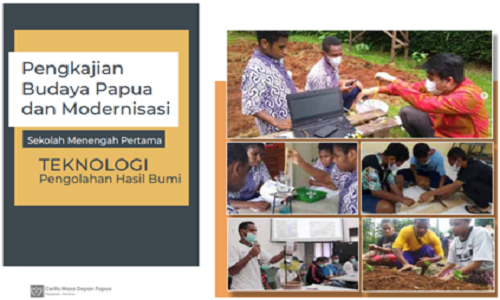
Effectiveness of The Papuan Culture and Modernization (PBPM) Assessment Program at Sekolah Anak Indonesia Sentul Bogor (CIPP Evaluation Model)
Abstract
Keywords
Full Text:
PDFReferences
Afinda, B. N., Anwar, S., & Sumarna, O. (2023). Analysis of The Need for Applied Science Teaching Materials in Chemical Materials in Vocational School, Department of Culinary, Tangerang District. Journal of Education and Learning Research, 1(1), 30-36.
Alkin, M. C. (2019). Evaluation roots: Tracing theorists’ views and influences. Sage Publications.
Anwar, S. (2022). Evaluasi Program Akademik dalam Peningkatan Mutu Lulusan di Ponpes Darul Azhar Kutacan. Ittihad: Jurnal Pendidikan.
Arifin, Z. (2019). Evaluasi Program Teori dan Praktek dalam Konteks Pendidikan Dan Nonpendidikan.
Arikunto, S., & Jabar, C. S. A. (2009). Evaluasi Program Pendidikan: Pedoman Teoritis Praktis Bagi Mahasiswa Dan Praktisi. Pt Rineka Cipta.
Bella, S., Azhar, A., & Islami, N. (2023). Development of Think-Pair-Share (Tps) Model Based Learning Tools for Global Warming Materials. Journal of Education and Learning Research, 1(1), 20-29.
Faizin, A., & Kusumaningrum, H. (2023). Review Model-Model Evaluasi Program Untuk Pendidikan Dan Pelatihan Online. Edumanajerial, 1(1), 42–54.
Farida, I. (2017). Evaluasi Pembelajaran Berdasarkan Kurikulum Nasional.
Haryanto. (2020). Evaluasi Pembelajaran; Konsep dan Manajemen. In Uny Press.
Kemenristek. (2023). Badan Bahasa Kementerian Pendidikan, Kebudayaan, Riset, dan Teknologi.
Koentjaraningrat. (2022). Pengantar Antropologi. Pt Rineka Cipta.
Kurniawan, A. (2022). Globalisasi dan Pembangunan Berkelanjutan. Pustaka Pelajar
Kemendikbud. (2017). Kementerian Pendidikan dan Kebudayaan Republik Indonesia Jakarta. Papua: Kekayaan Alam dan Budaya
Ritzer, G. (2018). Modernization Theory. In The Blackwell Encyclopedia Of Sociology.
Neraca. (2022). Neraca Pendidikan Daerah Provinsi Papua.
Pratiwi, D. R. (2022). Model CIPP Sebagai Kerangka Kerja Evaluasi Program. Jurnal Pendidikan Dan Pembelajaran, 76–77.
Sari, P. A., & Arief, M. (2021). Evaluasi program pembelajaran menggunakan model Kirkpatrick. Jurnal Pendidikan dan Pembelajaran, 30–31.
Sari, R. P. (2020). Evaluasi Kinerja Program Indonesia Pintar di Madrasah Ibtidaiyah Swasta Kecamatan Blimbing Kota Malang dengan Model CIPPO. Jurnal Evaluasi dan Pembelajaran, 2(1), 1-18.
Sugiyono. (2018). Metode Penelitian Evaluasi (Pendekatan Kuantitatif, Kualitatif, dan Kombinasi.
Suparlan, P. (2022). Kebudayaan Indonesia. Pt Gramedia Pustaka Utama.
DOI: http://dx.doi.org/10.31258/jes.8.3.p.488-498
Refbacks
- There are currently no refbacks.
Copyright (c) 2024 Edmundus Bawor, Masduki Ahmad, Desi Rahmawati

This work is licensed under a Creative Commons Attribution 4.0 International License.
Publisher: FKIP Universitas Riau












